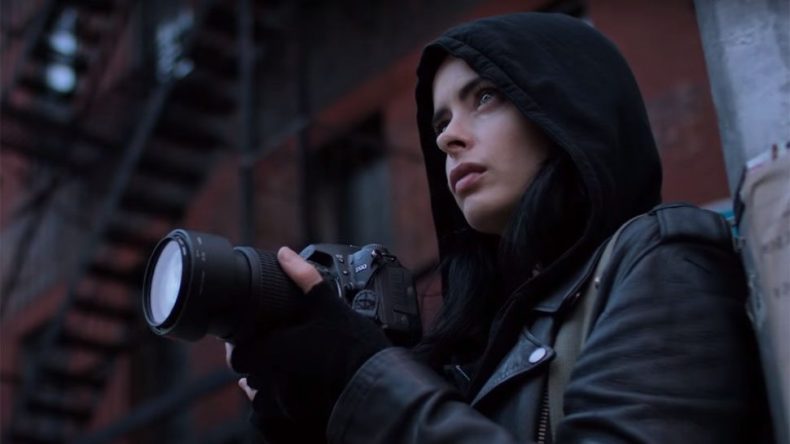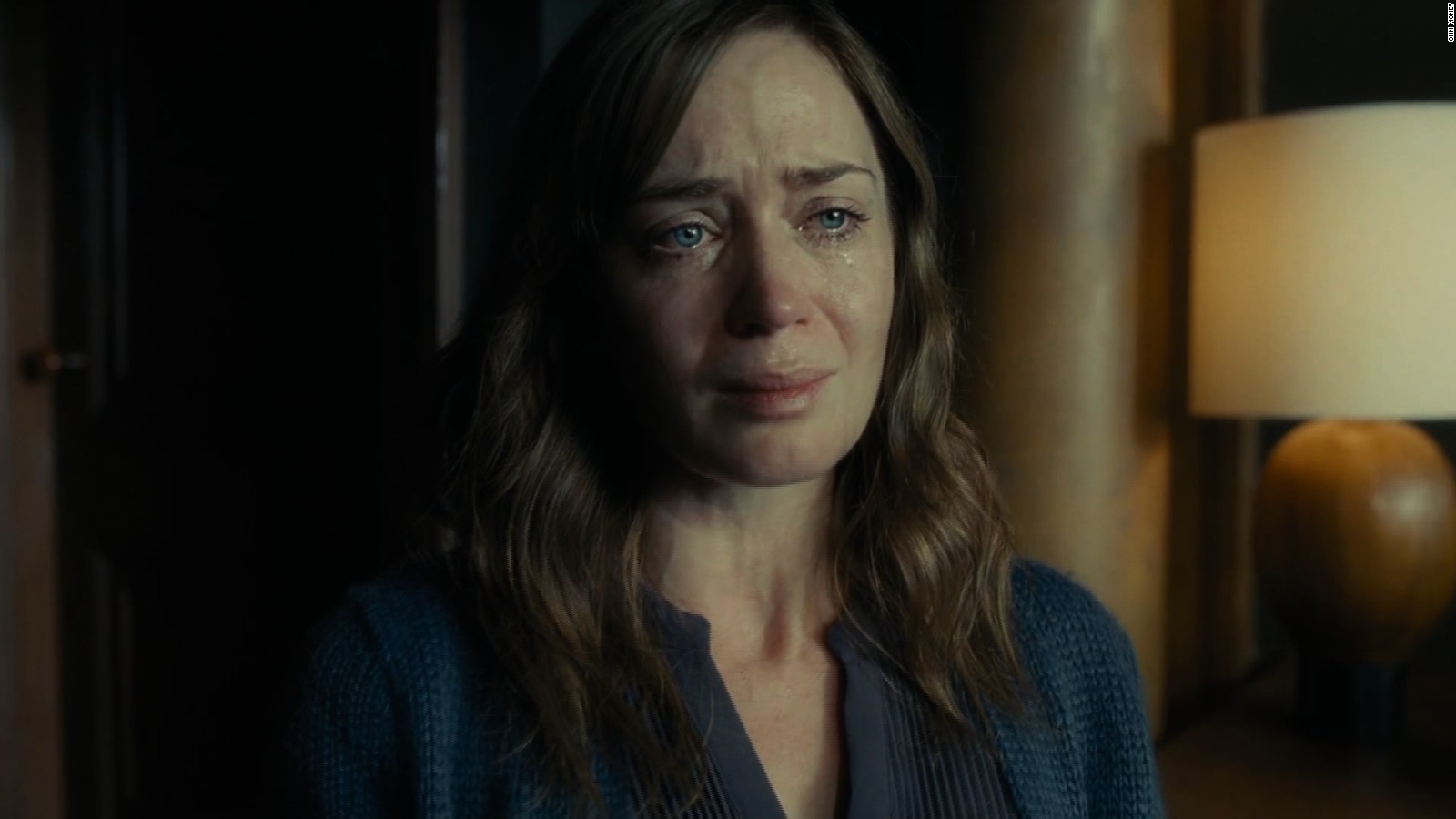
SPOILER ALERT: This post contains a discussion of plot details and themes from “Jessica Jones” Season 2. If you haven’t binge-watched the entire series yet, maybe bookmark this and come back to it later.
Yesterday, Netflix announced it will renew Marvel’s “Jessica Jones” for a third season.
This is fantastic news for a number of reasons.
“Jessica Jones” is easily one of the strongest of Marvel’s many TV spinoffs, so it’s a given that it should continue. Despite its faults, the series’ second season, which debuted in March, makes for wildly compelling viewing. From a feminist perspective, I can only describe it as mind-blowing.
On a more personal level, I have a soft spot for surly-superhero-turned-private investigator Jessica (so boldly and beautifully portrayed by Krysten Ritter) because she made her television debut exactly when I needed her in all her messy, misanthropic, maladjusted glory.

The series was launched in 2015, about a year after I gave birth to my daughter. During this time, I was blindsided by depression and rage. I’d always felt reasonably put together and in control of my life, but suddenly I found myself at the mercy of intense bouts of sadness and anger. I began to question my sanity and doubt myself at every turn.
I discovered a weird kind of solace in watching Jessica, snarling at clients and loved ones, drinking herself senseless every night, sleeping in her clothes, giving free rein to her anger, often with her fists, and generally wallowing in the mess that was her sad, pathetic, super-powered life. Her major bad attitude and hilariously toxic one-liners were a balm to my soul.
Maybe it’s strange that I found it comforting to see all my worst impulses, desires, and fears reflected back at me in the form of one hot mess of a comic book heroine, but I feel like Jessica is my secret spirit animal. She is what I would be if I ever just let it all hang out, if I let go and lost control. There is something liberating about that.
I don’t think I’m the only woman who feels this way about fictional female screw-ups. Around the same time, my book club was reading Paula Hawkins’ thriller “The Girl on the Train,” before it was turned into a movie starring the amazing Emily Blunt.

The character Blunt would eventually portray is a self-destructive functioning alcoholic whose life is a shambles. She drinks herself into oblivion every night, then wakes up each morning and catches a train to London to maintain the lie that she didn’t lose her job months ago. Meanwhile, she uses her daily train trip as an excuse to stalk her ex-husband and his new wife, who has usurped the picture-perfect life she once enjoyed.
Again, I felt myself identifying with this character, who I had very little in common with except for a nagging sense of self-loathing and the lingering suspicion that I might at any moment lose control of myself and, in the process, harm the people I loved.
When I confessed these feelings to the women in my book club, I was surprised to learn that most of them felt the same way.
I’ve thus concluded that, while it’s important for women to see themselves represented on-screen in characters who are strong and triumphant, we also need flawed heroines, those figures who embody our worst fears about ourselves, if only so we can feel less alone and be encouraged to talk about what we’re struggling with.
In Season 1 of “Jessica Jones,” our heroine was tormented by mind-controlling rapist Kilgrave, played so masterfully by David Tennant. The series was applauded for its depiction of the PTSD that often afflicts sexual assault victims. Many women appreciated this sensitive representation of their experience.
So, you see, we need superheroes like Wonder Woman to show us our potential for grace, goodness, and courage, and we need superheroes like Jessica Jones to reassure us that it’s ok to fall, to fail, to hurt, and to be human.

Tennant’s insidiously icky performance loomed so large over the first season of “Jessica Jones,” I wondered how the makers of the show would ever be able to top it, let alone move forward from it.
In Season 2, rather than replace Kilgrave with another outsize male villain, the writers focus almost entirely on female leads, including Jessica, who is wrestling clumsily with her new public image as a “powered person” and, to some, a killer, and her best friend, child-star-turned-radio personality Trish (Rachael Taylor), who wants to be taken more seriously in her journalistic endeavors.
Making the women of “Jessica Jones” the priority this season turns out to be a great decision. Actually, when Kilgrave makes a reappearance toward the end of the season, I found it to be one of the show’s weakest moments. Sadly, as in Season 1, the series is an uneven slow-burn until it jumps the shark at about the third to last episode.
It takes about half the season for the new “Big Bad” to emerge from the shadows and when she does, she’s something completely unexpected. She’s Jessica’s mother, still alive and a product of genetic experimentation, just like her daughter, only in this case, it’s gone terribly wrong.
Janet McTeer plays sweetly maternal, but seriously scary rage monster Alisa with an mixture of brute physicality and tenderness. Her performance is extremely memorable and an utter pleasure to watch.

Female relationships are the focal point of the season, whether exploring the complexities of the mother-daughter dynamic or the enduring power of the friendship between Jessica and “sister,” Trish.
This season is all about the theme of power: women who want power, women who revel in power they never had before, women who are ambivalent about their power, and women who have lost their power. (Carrie Anne-Moss is a total boss as shark-like lawyer Jeri Hogarth, who is made unexpectedly vulnerable this time around.)
Perhaps the most impressive thing about Season 2 is that it was directed exclusively by women and the difference that makes is almost shocking, resulting in a complete reversal of the male gaze we’re so used to seeing on television. (Ava DuVernay’s “Queen Sugar” and Marvel’s “Luke Cage” have announced they’ll follow suit with seasons featuring all-female directors.)
I’m still blown away by how impactful it can be to have a viewing experience where the sexualization or exploitation of female characters is completely absent and the women depicted have agency over their bodies – unless they’re being experimented on by IGH, of course – and their sexuality.
As in Season 1, there’s an emphasis on female pleasure to the extent that in one scene, Jessica and her new love interest (J.R. Ramirez) are in bed and the camera lingers slowly over Ramirez’ naked chest while Jessica is seen next to him, fully clothed.
The importance of tiny victories like this cannot be understated.
There are many more deeply satisfying feminist achievements in Season 2, like Trish’s #metoo moment with an aging movie star, a scene in which Jessica basically redefines the word “bitch” (through violence, of course), and the breathtaking moment when the typically vapid Trish (“I Want Your Cray Cray!”) realizes she doesn’t want to marry her globetrotting war reporter boyfriend. She wants to be him!
Unfortunately, the writers ultimately go in a direction with Trish that rings false. However, even when the writing seems contrived or lazy, it’s tempting to declare “Jessica Jones” a feminist masterpiece.
I can’t wait to see what happens in Season 3.
Photos: Marvel, Universal Pictures.
Nice post! 🙂 I enjoyed the second season a lot more than I thought I would. And Jessica Jones is probably my favourite out of all the Netflix Marvel shows!
Thanks! I agree that it’s by far the best of the Marvel series.